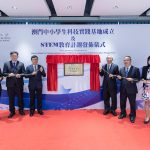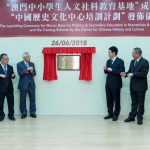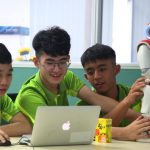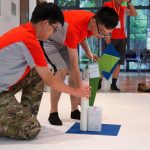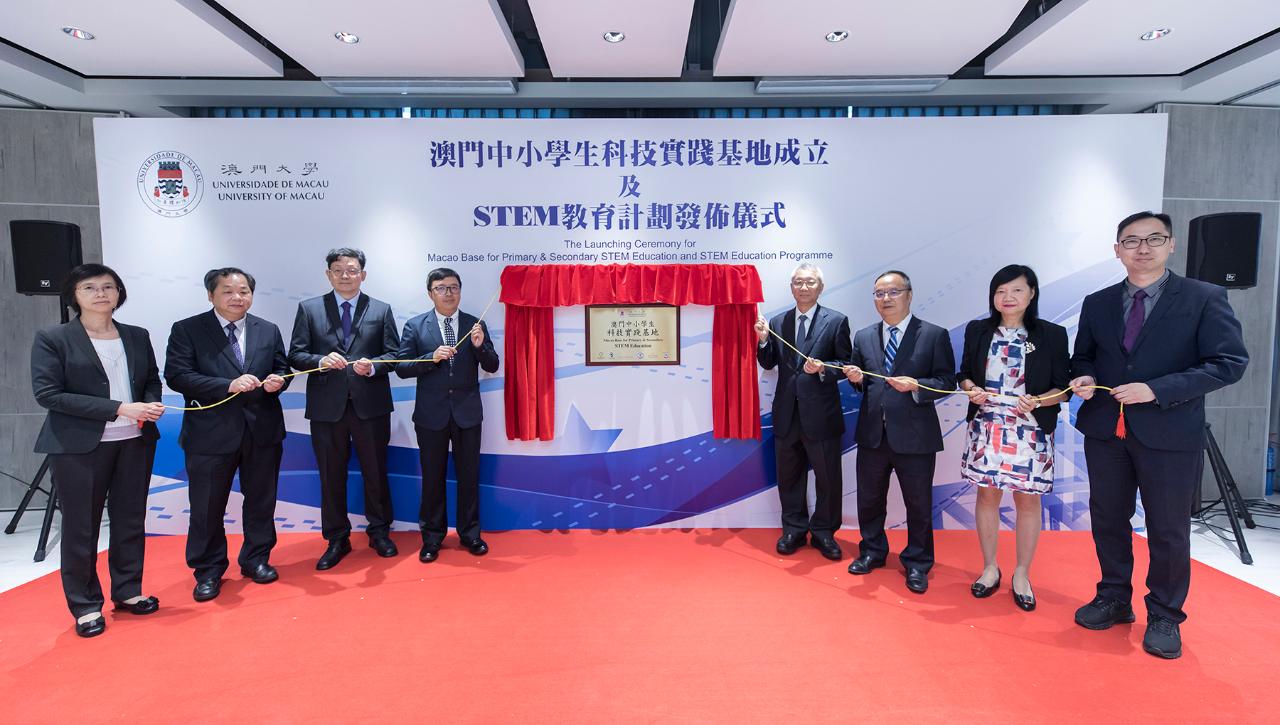 UM inaugurates the Macao Base for Primary & Secondary STEM Education
UM inaugurates the Macao Base for Primary & Secondary STEM Education
The curiosity to explore the world has been responsible for much of the progress mankind has attained throughout its existence. Knowing that the future of society rests in the hands of the youth, the University of Macau (UM), as the only public comprehensive tertiary institution in Macao, feels duty-bound to instill in the youth a passion to explore the unknown. The Macao Base for Primary & Secondary STEM Education was established precisely for this purpose. The base aims to enhance the competitiveness of young people in Macao by improving their knowledge in science, technology, engineering and mathematics. Another educational base, the Macao Base for Primary & Secondary Education in Humanities and Social Sciences, which was established at around the same time, aims to promote whole-person education and inspire students to contemplate issues in humanities and human sciences.
Integrating Resources for STEM Education
The base for STEM education has launched a series of programmes through UM’s Centre for Science and Engineering Promotion (CSEP), in order to support science popularisation in Macao and provide continuous training for teachers and students from secondary schools. The base collaborates with different sectors of society to promote science education in Macao, by organising summer camps, programmes to help students discover their potential, and lectures on various topics, as well as arranging for students to participate in international competitions and exchange programmes. So far, between 80 and 90 per cent of secondary school students in Macao have participated in science popularisation activities organised by UM. In July and August of this year, the base organised seven science camps of different themes, namely civil engineering, robotics and artificial intelligence, computer vision and artificial intelligence, 3D reconstruction with quadcopters, wireless technology, transport technology, and mathematics and big data. The summer camps attracted more than 150 students from 16 local schools.
Another science popularisation programme launched by the base this year is the On-The-Go Project. Prof Tam Kam Weng, associate dean of the Faculty of Science and Technology (FST) and director of the CSEP, explains that vehicles will be converted into mobile science platforms to let students in local schools experience the fun of science. The base also plans to launch the ‘Liaison Professor to High School’ project, where professors from different disciplines will be assigned to different schools as coordinators to assist with science popularisation. In addition, the base offers a training workshop in technological innovation for primary and secondary school teachers on a regular basis. In the workshop, FST professors share the latest research findings and applications in their respective fields.
On the international front, the base actively collaborates with overseas institutions to organise various kinds of international exchange activities in science and technology, in order to expose Macao students to the latest research achievements and new ideas from overseas schools. In November 2018, the based held the International Workshop on Research Innovation and STEM Education for the Next Generation. During the workshop, representatives from UM and Ciência Viva, the Portuguese National Agency for Scientific and Technological Culture, discussed possibilities for collaboration on various STEM activities, the launch of international exchange activities in science and technology, and the establishment of a science popularisation platform for Portuguese-speaking countries.
Promoting Education in Humanities and Social Sciences
The base for humanities and social sciences is comprised of several pre-existing centres at UM, namely the Centre for Chinese History and Culture, the Confucius Institute, the Chinese-Portuguese Bilingual Teaching and Training Centre (CPBTTC), and the Centre for Macau Studies. Prof Hong Gang Jin, dean of the Faculty of Arts and Humanities (FAH) and director of the Confucius Institute, says, ‘The base gives secondary and primary school students in Macao an opportunity to receive whole-person education at a young age, through which we can support Macao and China in talent development, innovation, and entrepreneurship.’ The Confucius Institute and the CPBTTC work closely to offer training courses in Portuguese language, Chinese language, and Chinese culture, as well as lectures by Chinese and Portuguese artists and prominent figures in the literary circle.
In early 2018, the Centre for Chinese History and Culture (CCHC) and several local schools signed collaboration agreements on the establishment of a base for promoting Chinese history and culture. Other measures the CCHC has adopted to promote Chinese history and culture include organising more than 30 lectures in local schools, conducting a survey on local students’ knowledge of Chinese history and culture, founding the newspaper Macau Juveniles, and producing children’s books that feature intriguing Chinese folktales, fables and stories in Portuguese and English. Prof Hao Yufan, director of the CCHC, says, ‘the university boasts an excellent international faculty team. Apart from doing well in research, the faculty members ought to play a role in disseminating Chinese culture to the younger generation in Macao.’
As part of the base for humanities and social sciences, the Centre for Macau Studies (CMS) has launched several projects to disseminate knowledge about Macao to primary and secondary school students in Macao. According to Prof Agnes Lam, director of the CMS, the centre will establish a series of databases using the data on Macao it has collected over the past 30 years to stimulate interest in learning. For instance, there will be a database on entomology, which will include general knowledge on local species such as leptanilla macauensis.


